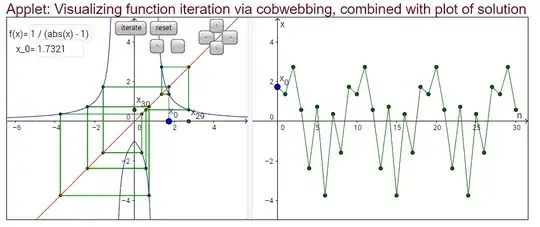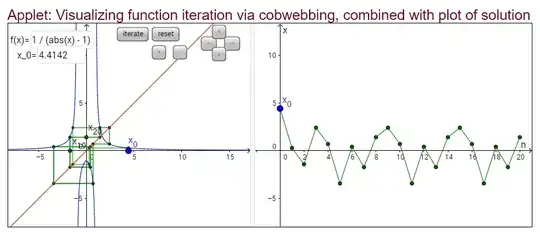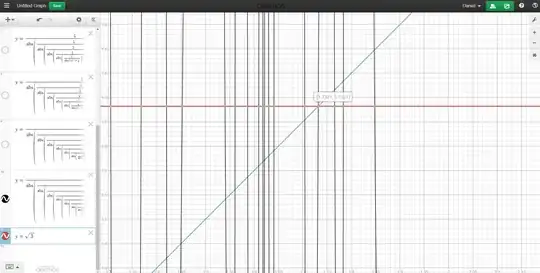Depending on the starting value, the end result of this iterative sequence appears to be very variable, for example, if the starting value $a_0\ =\frac{b}{c}$ where $b$ and $c$ are integers, then eventually the sequence appears to always reach 0, and then infinity afterwards, ending the sequence.
Another situation is if the starting value is in the form $\frac{b+\sqrt{5}}{2}$ where $b$ is an integer, this now appears to converge to either $\frac{1+\sqrt{5}}{2}$ or ends up switching between $\frac{1-\sqrt{5}}{2}$ and $\frac{-3-\sqrt{5}}{2}$ endlessly.
Yet again another situation, where the starting value is not rational and not in the form I described previously, sometimes other starting values experience periodicity e.g. for $a_0 = \sqrt{3}$ there are only 9 values that the sequence can take. Also similar to this category, some values are not initially periodic but eventually hit a value which is; e.g. $a_0 = 3-\sqrt{3}$ .
Outside of these categories, there are some which I imagine should never converge e.g. $\pi$ , although it does have a tendency to tend towards $-1$ and then towards a very large number, before cycling back to a small one again.
EDIT: this is an interesting visualisation for the $\sqrt{3}$ case (see figure 1)
EDIT 2: this is another interesting discovery, if i put $f(x)=x$ for n iterations in a graphing calculator and record all of the points where the graph $y=x$ intersects the other graph, all of these points are the values of $x_0$ which are periodic of period n (see figure 3, i have written the equation for 9 iterations and found a fixed point at $\sqrt{3}$).
I also notice that the number of fixed points appears to be getting much larger each time, and these fixed points are particularly dense around the golden ratio phi and this might indicate that after an arbitrarily large number of iterations, we have an arbitrarily large number of fixed points, though I don't know if this would cover all algebraic numbers . However, some other values for $x_0$ may not themselves be periodic, but eventually reach one that is e.g. $3+\sqrt{2}$ (see figure 2)
My question is, can it be
a.) Proven/disproven that for starting value a/b , the sequence will eventually reach 0?
b.) Proven/disproven that for any algebraic number, the sequence is eventually finitely periodic, and if so, is there are a way of determining its period?
c.) Proven/disproven that the sequence does not converge for transcendental numbers?
Any information on this topic would be greatly appreciated!


